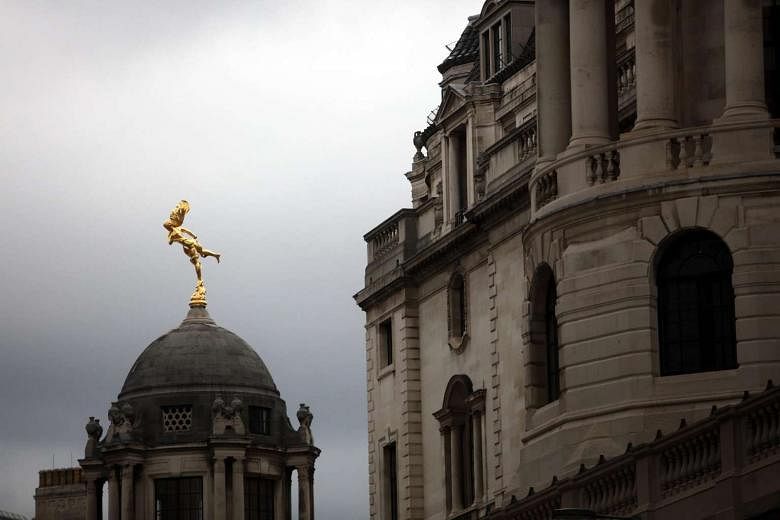LONDON (AFP) - The Bank of England warned on Tuesday (July 6) that risks to financial stability were materialising after Britain's shock EU exit referendum, as commercial property investors scrambled to pull money out on Brexit fears.
The central bank's Financial Policy Committee (FPC) watchdog outlined various risks after Britons had voted last month to leave the European Union.
The pound meanwhile plunged to fresh 31-year dollar low at exactly US$1.30 after Bank of England (BoE) governor Mark Carney vowed to take "whatever action is needed" to support stability.
And Britain's first government bond launch since the June 23 EU referendum returned a record-low yield of 0.382 per cent.
The BoE also relaxed commercial banks' capital requirements to encourage lending to businesses and households and stimulate economic growth.
"There is evidence that some risks have begun to crystallise. The current outlook for UK financial stability is challenging," the FPC, which oversees financial stability, said in a bi-annual report.
The committee pinpointed Britain's commercial real estate market, which it argued had "experienced particularly strong inflows of capital from overseas and where some valuations in some segments of the market had become overstretched".
The news, combined with intensifying Brexit worries, prompted both Aviva Investors and M&G Investments to suspend trade in key property funds, mirroring a similar move by Standard Life on Monday.
The BoE also highlighted a raft of other risks, including Britain's "large" current account deficit, high household debt, fragile financial markets and subdued global economic growth.
The FPC update was published after Britain last month voted to become the first country to leave the 28-nation EU bloc - a shock result has sparked political and market chaos.
"It will take time for the United Kingdom to establish new relationships with the European Union and the rest of the word," the report cautioned.
"Some market and economic volatility is to be expected as this process unfolds." Stability risks also stemmed from the state of the world economy - and particularly the eurozone.
"Subdued growth in the global economy, including the euro area, which could be exacerbated by a prolonged period of uncertainty," the BoE said.
"This comes at a time when banks in some euro-area countries are still working through legacy issues from the financial crisis and are facing challenges from operating in a low interest rate environment."
In the eurozone, Italy shifted into focus after the European Central Bank (ECB) warned Italy's number-three lender Banca Monte dei Paschi di Siena had dangerously high levels of bad debt.
Meanwhile on Tuesday, the BoE cut the British banking sector's so-called capital buffer rate from 0.50 per cent to zero, where it will stay until at least June 2017.
The move will boost lending by up to £150 billion and reduce banks' regulatory capital buffers by £5.7 billion.
British finance minister George Osborne held meetings with the country's top banks to discuss increasing lending.
"The bank can be expected to take whatever action is needed to promote monetary and financial stability, and as a consequence, support the real economy," Mr Carney told reporters, adding that it has a "clear plan" to address heightened markets uncertainty.
"The FPC is supporting the real economy by ensuring that banks can use the substantial capital and liquidity buffers they have in place."
Mr Carney had indicated last week that the BoE could cut its key interest rate to a new record-low level under 0.50 per cent as early as this month - while it may decide also to pump out more cash stimulus as a result of Brexit.
Global markets had dived in the immediate aftermath of the surprise June 23 referendum vote.
In the wake of the chaos, the BoE vowed to pump at least £250 billion into money markets if needed to prevent a damaging credit crunch.

